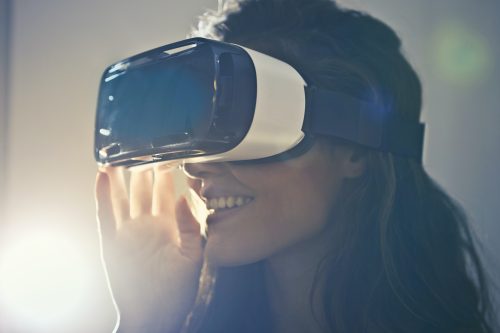In a bold move towards the future of augmented reality (AR) and virtual reality (VR), Apple has released its Vision Pro software development kit (SDK), along with plans to establish developer labs across multiple global locations. With this strategic move, Apple aims to ignite developer engagement and create a robust ecosystem of immersive experiences for its highly anticipated Vision Pro headgear, set to hit the shelves in the United States within the next six months.
The lukewarm reception during the recent Worldwide Developers Conference (WWDC) indicates that Apple is aware of the critical role that content plays in the success of VR and AR technologies. By providing early access to the $3,500 Vision Pro SDK, Apple is inviting developers to unleash their creativity and build captivating experiences on the platform. Furthermore, Apple anticipates a thriving App Store dedicated to Vision Pro apps by early 2024, reinforcing the significance of developer participation.
Susan Prescott, Apple's Vice President, expressed her excitement about the possibilities enabled by the Vision Pro SDK. Developers can leverage familiar and powerful frameworks such as Xcode, SwiftUI, RealityKit, ARKit, and TestFlight to craft innovative visionOS apps. Additionally, Apple introduces Reality Composer Pro, an advanced tool that empowers developers to design entirely new experiences, leveraging spatial computing to enable seamless interaction, productivity, and entertainment for users.
Spatial computing, a core aspect of Apple's visionOS, revolutionizes the way users engage with their digital environment. By default, apps launch into the Shared Space, mimicking the coexistence of Mac desktop apps. Users have the freedom to manipulate windows and volumes to display content, while apps can create Full Space experiences for complete immersion. Developers can push the boundaries of creativity by designing unbounded 3D content, constructing portals to alternate universes, or enveloping users in captivating virtual environments.
To foster collaboration and address the challenges of early adoption, Apple plans to establish developer labs in Cupertino, London, Munich, Shanghai, Singapore, and Tokyo. These labs will provide developers with access to on-site hardware for testing their apps or hardware developer kits for off-site evaluation. This initiative aims to bridge the gap between developers and the unreleased, high-end Vision Pro headset, enabling them to optimize their applications for an unparalleled user experience.
Apple's commitment to providing developers with robust tools is evident with the introduction of Reality Composer Pro. Developers can leverage Xcode to preview 3D models, visuals, sounds, and animations within the headset, while the simulator allows testing without physical hardware. Additionally, Unity development tools will be supported, enhancing the gaming experiences available on the platform.
The company’s enterprise-focused approach is evident in its collaboration with PTC, enabling manufacturers to harness AR solutions for enhanced collaboration and problem-solving. By integrating interactive 3D content into the real world, stakeholders from different departments and locations can analyze and make critical design and operating decisions together in real time. Apple's Vision Pro empowers unprecedented collaboration and paves the way for transformative advancements across industries.
As Apple promises to unveil more information and tools, developers and technology enthusiasts eagerly await the immersive experiences and groundbreaking applications that will shape the future of spatial computing.
























